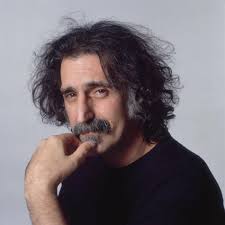
Frank Zappa was a singular force in 20th-century music—a composer, guitarist, satirist, and cultural provocateur who defied every category imposed upon him. His career was marked not by conformity or commercial calculation, but by an unrelenting dedication to originality and complexity. From the moment he emerged on the scene, Zappa made it clear: he would answer to no one but his own creative instincts.
Born in Baltimore in 1940 and raised in California, Zappa was drawn early to classical music, especially the avant-garde works of composers like Edgard Varèse and Igor Stravinsky. While most of his peers were listening to pop radio, Zappa was analyzing orchestral scores and learning how to manipulate sound on tape. This grounding in classical experimentalism would become a signature component of his rock compositions later in life.
Zappa’s first major impact came in 1966 with the debut album Freak Out! by his band The Mothers of Invention. It was only the second double album in rock history and the first concept album of its kind. Fusing doo-wop, blues, psychedelia, and musique concrète, it shattered traditional notions of what rock music could be. Even more striking was the biting satire embedded in the lyrics—a critique of American consumerism, politics, and cultural hypocrisy that would persist throughout his work.
Over the next three decades, Zappa produced an astonishing volume of material, releasing more than 60 albums during his lifetime. His music spanned rock, jazz fusion, orchestral works, electronic experiments, and absurdist comedy, often within the same album—or even the same track. While the mainstream music industry struggled to categorize him, Zappa cultivated a fiercely loyal following that admired his virtuosity, fearlessness, and refusal to pander.
Zappa was not only a brilliant musician but also a fierce advocate for artistic freedom. In the 1980s, he became a leading voice against censorship, most famously testifying before the United States Senate against the Parents Music Resource Center (PMRC). With sharp intelligence and unwavering conviction, he defended the First Amendment and called out the dangers of moral panic and government overreach. For Zappa, music was not just entertainment—it was a tool for truth-telling and cultural resistance.
Technically, Zappa was unmatched. As a guitarist, he combined raw improvisational energy with compositional precision, often playing alongside or against complex time signatures and harmonies. His band members were some of the most skilled musicians of their time, and he demanded excellence from them. Rehearsals were rigorous, and performances often featured jaw-dropping displays of technical brilliance, balanced with humor and theatricality.
Though many of his contemporaries saw commercial success through radio hits and arena tours, Zappa largely bypassed the commercial mainstream. Yet his influence was vast. Musicians across genres—from rock and metal to jazz and classical—have cited him as a major inspiration. His innovations in studio production and live performance helped shape modern music’s creative possibilities, particularly in how genre boundaries could be dissolved.
Zappa’s intellectual curiosity extended far beyond music. He had a deep interest in politics, philosophy, and science, and often integrated those themes into his albums. His lyrics were as likely to explore existential questions or criticize sociopolitical institutions as they were to indulge in bizarre or surrealist humor. This rare combination of high intellect and outrageous absurdity became a hallmark of his persona and work.
Perhaps what made Zappa so enduring was his integrity. He never compromised his artistic vision for mass appeal, nor did he shy away from uncomfortable truths. Even when misunderstood or vilified, he remained unapologetically himself—an artist committed to pushing boundaries and questioning authority. His work demands engagement, challenges assumptions, and rewards those willing to listen deeply.
Though Zappa passed away in 1993 from prostate cancer, his legacy has only grown. Posthumous releases, documentaries, and academic studies continue to shed light on the depth and breadth of his contributions. His archives, preserved and released by his family, reveal an artist who was constantly writing, recording, and imagining new sounds until the very end.
Zappa was far more than a rock musician. He was a cultural force—an eccentric genius whose body of work defies easy classification. To engage with his music is to enter a world of complexity, contradiction, and staggering creativity. He remains a towering figure not because he played by the rules, but because he redefined them entirely.
In an era of formulaic content and safe choices, Frank Zappa stands as a defiant reminder of what true artistry looks like: fearless, uncompromising, and utterly original. His music continues to challenge, provoke, and inspire—a revolutionary voice that refuses to be silenced.

Leave a Reply